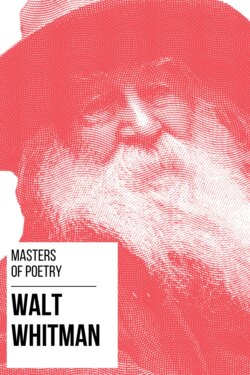Читать книгу Masters of Poetry - Walt Whitman - August Nemo, John Dos Passos, Ellen Glasgow - Страница 45
На сайте Литреса книга снята с продажи.
VI
ОглавлениеUnder close scrutiny his egotism turns out to be a kind of altru-egotism, which is vicarious and all-inclusive of his fellows. It is one phase of his democracy, and is vital and radical in his pages. It is a high, imperturbable pride in his manhood and in the humanity which he shares with all. It is the exultant and sometimes almost arrogant expression of the feeling which underlies and is shaping the whole modern world—the feeling and conviction that the individual man is above all forms, laws, institutions, conventions, bibles, religions—that the divinity of kings, and the sacredness of priests of the old order, pertains to the humblest person.
It was a passion that united him to his fellows rather than separated him from them. His pride was not that of a man who sets himself up above others, or who claims some special advantage or privilege, but that godlike quality that would make others share its great good-fortune. Hence we are not at all shocked when the poet, in the fervor of his love for mankind, determinedly imputes to himself all the sins and vices and follies of his fellow-men. We rather glory in it. This self-abasement is the seal of the authenticity of his egotism. Without those things there might be some ground for the complaint of a Boston critic of Whitman that his work was not noble, because it celebrated pride, and did not inculcate the virtues of humility and self-denial. The great lesson of the "Leaves," flowing curiously out of its pride and egotism, is the lesson of charity, of self-surrender, and the free bestowal of yourself upon all hands.
The law of life of great art is the law of life in ethics, and was long ago announced.
He that would lose his life shall find it; he who gives himself the most freely shall the most freely receive. Whitman made himself the brother and equal of all, not in word, but in very deed; he was in himself a compend of the people for which he spoke, and this breadth of sympathy and free giving of himself has resulted in an unexpected accession of power.
